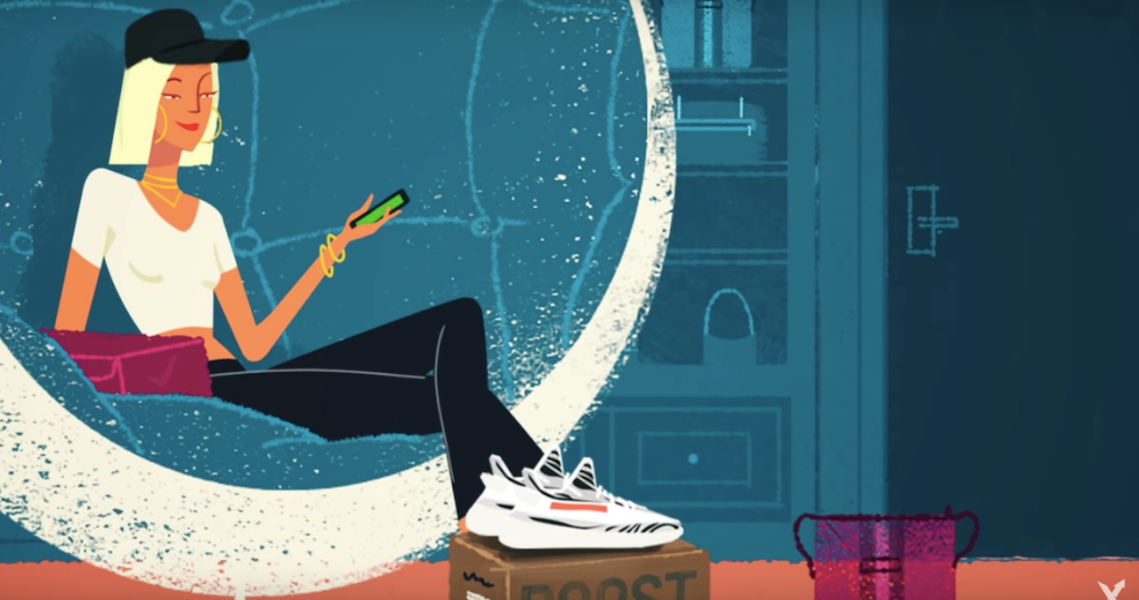The different resale platforms have experimented with multiple processes to get an edge on their competitors, with the idea that high volume sellers will be attracted to whatever place will let them sell and get paid fastest.
Unfortunately, the coronavirus pandemic has disrupted many of those time-saving efforts.
StockX, for example, has begun warning all customers to expect a 7-10-day delay, on top of the usual 2-5 days, in receiving product or payment. But users are reporting even longer times. Complex’s Jeffrey Jason said that he had to wait more than 20 days to get paid for a sale through StockX. At GOAT, two different customers told Glossy they saw several weeks from when their sneakers were sold to when they received payment. One said he will continue to sell through GOAT in the future, once the delays stop.
These problems are arising because the resellers in question have their resources stretched thin due to the pandemic. StockX laid off 12% of its workforce, plus it’s had to close all of its in-person drop-off locations where customers can get their shoes processed and get paid all in a matter of minutes. Without those drop-off points, StockX has to have every piece shipped in and process it with fewer employees. Stadium Goods, GOAT and Flight Club have all closed their physical locations, as well. GOAT had to close its Culver City fulfillment center which is part of the reason for its delays, according to emails sent to some customers. Non-streetwear resellers have also been hit with layoffs, like The RealReal which cut 10% of its corporate staff.
Reached for comment, StockX pointed to a statement from CEO Scott Cutler.
“Given our reliance on global shipping providers, we are naturally subject to delays and disruptions in countries under quarantine,” Cutler said. “However, at the time of this posting, such disruptions are minimal, and customers are receiving the same high level of service. While the fluid nature of this situation may impact the customer experience in the future, we are proactively planning for every contingency to minimize any disruption to our customers.”
“For the vast majority of resellers, cash flow is very important,” said George Sullivan, co-founder and CEO of Sole Supplier, a media company focused on footwear and sneakers. “It’s important they get their cash fast, otherwise they will miss out on other high heat releases, due to lacking the funds they need to put in up front to invest in other pairs.”
Forty percent of sales on GOAT come from repeat sellers as opposed to one-time sellers, but nearly all of those sales come from an extremely small number of power sellers who can sell up to a million pairs of shoes per year each. Notably, Grailed, which automates payments through PayPal as soon as a sale is made and ships peer-to-peer, told Glossy it has seen no delays in payments or shipping. At StockX, GOAT and Stadium Goods, the shoes must pass through the platform first on their way to the end buyer, normally a process that takes less than a week.
“It is hard to understand how long it will take to get your money from each platform, as this can vary depending on the authentication team’s backlog,” Sullivan said. “Coronavirus has certainly slowed down many systems, like across the whole of retail, as platforms adjust to home working or have smaller teams in physical offices. It’s tricky, for sure.”
Outside of just sneakers, the larger resale community has faced issues with getting product from sellers with the forced closure of drop-off centers and the expense of UPS pick-ups pieces from people’s homes, as Fashionphile has done.
However, the long delay in processing and payment times hasn’t necessarily coincided with reduced sales. StockX recorded its biggest sales months ever in May and June, with just three shoes accounting for more than $25 million in sales. GOAT CEO Eddy Lu said in an interview with Input that overall sales for the company are up, including a 68% increase in the sale of Air Jordans in the last month. Sellers and buyers are still doing business with resale companies, and investors are still interested. Resellers like Rebag and Vestiaire Collective both got funding rounds of $15 million and $64 million, respectively, in the last month.




